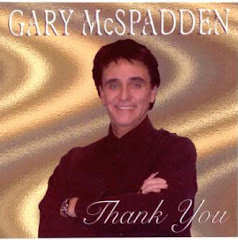Why do Agents Turn Down Good Books?
We live in a time of publishing turmoil. One of the unusual bits of news that drifted back from the ICRS, (CBA) show is that some publishers are rolling back advances, dramatically. On top of reduced lists of new books, a one thousand dollar advance is rumored to be the new "standard."
Agents have to be careful. With new titles becoming more rare and more agents than ever before, the availability of income producing clients is restricted and money spent developing new titles, new authors, or new concepts is having to be restricted with it.
As with all market corrections, this one chock full of opportunity for an imaginative, creative and determined author. Mine this and every other source of advice for what pertains to you and your project. Develop a constancy of purpose, single minded and indefatigable about marketing your work and keep good records.
It all counts.
By
Anne Hawkins, Literary Agent
John Hawkins & Associates, Inc.
CREDENTIALS AND/OR PLATFORM: For certain types of non-fiction, an author needs relevant professional or academic credentials. For example, to write a credible diet book, it’s best that the author (or co-author) be a physician or a nutritionist with demonstrated knowledge and experience in the field. Agents know that publishers aren’t likely to go out on a limb with a book that can’t speak with some kind of authority.
“Platform” is a different animal. It’s usually defined as the existing audience that an author can bring to his book. Authors often develop their platforms through such vehicles as speaking engagements, syndicated columns in magazines or newspapers, media exposure, or a very strong internet presence. Platform is essential to selling some kinds of nonfiction. Without it, an agent will surely turn down the project, no matter how good it may be.
CONFLICT OF INTEREST: Weirdly enough, this situation comes up much more frequently than anyone would suppose. If a new author approaches an agent with a project that is uncannily similar to one she’s currently representing, the agent has to turn it down. There’s simply too great a chance for misunderstanding or possible legal action if one author suspects that his agent has discussed his ideas with a competitor. This is the kind of situation that can ruin an agent’s reputation, and no book is worth that.
SUITABILITY FOR AGENT/AGENCY: This is somewhat of an odd-ball issue, but it does happen. Once in a great while, an agent will have to turn down a project simply because representing it could cause hard feelings among her established clients or publishing contacts. To use an extreme and fictitious example, let’s say that an agent does a lot of business in the Christian publishing market. She’d be hard pressed to take on a book with raunchy or irreverent content that would be deeply offensive to the authors and editors with whom she works every day. Most of the time, agents are pretty eclectic in the projects that they choose -- and authors and editors accept that -- but there are some lines that just can’t be crossed.
Good books draw rejections for a variety of reasons, and many of these reasons have nothing to do with the quality of the work. I know for a fact that I have has turned down books that other agents subsequently took on and sold. Then again, I’ve had some major successes with books that quite a number of my colleagues had previously rejected. If a book is truly outstanding, it’s only a matter of time until the right agent steps up to the plate and offers to represent it. Don’t give up too soon!
http://killzoneauthors.blogspot.com/2009/07/why-do-good-agents-turn-down-good-books.html
What To Do with Strange Experiences
3 days ago








No comments:
Post a Comment